
| Home | Aerospace | Biology | Chemical | Computers | Mathematical | Mechanics |
Schedule Summary
November 20
Clicking on a link in this table would take you directly to the meeting.
| 09:00 | Organizers | HPC Research Week Inaugural |
| 09:30 | Sanjay Mittal | How does flow past finite wings at low Re compare with the predictions from the Lifting Line theory? |
| 10:30 | Ratnesh Shukla | Extreme scale simulations of high-speed flows using a high-resolution adaptive order finite-volume method |
| 11:00 | Harshal Akolekar | Machine Learning for Turbulence and Transition Modelling in Gas Turbines |
| 11:30 | Krishnendu Sinha | Direct numerical simulation to investigate the physics of shock-turbulence interaction |
| 12:00 | Somnath Ghosh | Compressible turbulent flows- some recent results from DNS and LES |
| 12:30 | Somnath Roy | GPU optimization of an incompressible immeresed boudary solver |
| 13:00 | Lunch Break | |
| 14:00 | Prabhu Ramachandran | Lessons from a decade of PySPH |
| 14:30 | Raja Banerjee | Journey in the Development of Spray Model for Pressure Swirl Atomizer |
| 15:00 | Arnab Roy | Numerical studies on shock wave diffraction |
| 15:30 | Rajesh Ranjan | Enhancing Aerospace CFD predictions using Emerging Computing Architectures and Machine Learning Algorithms |
Our Esteemed Speakers
| Organizers on November 20 at 09:00 | |
| Keynote Address on November 20 at 09:30 | |
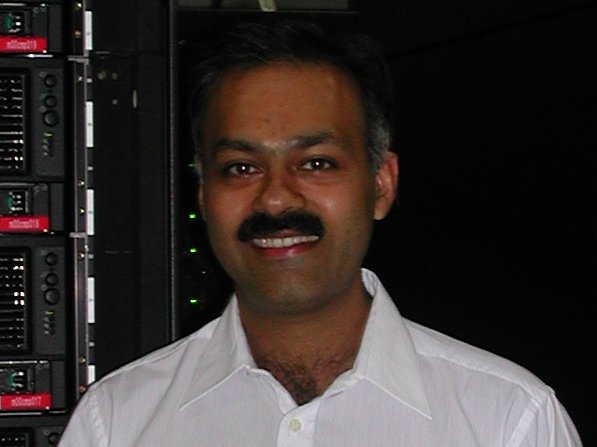 Sanjay Mittal IIT Kanpur | How does flow past finite wings at low Re compare with the predictions from the Lifting Line theory? Author Bio: Prof. Sanjay Mittal is a professor in the Department of Aerospace Engineering, IIT Kanpur. Prof. Mittal received his B.Tech in Aerospace Engineering from IIT Kanpur, and his Masters and PhD from University of Minnesota, USA. He subsequently joined as an Assistant Professor in the Department of Aerospace Engineering IIT Kanpur, his alma matter, in 2004. Professor Mittal has been a prolific researcher, and his broad research interests include high performance computing, design of accurate and robust numerical methods and experimental aerodynamics. He has published more than hundred journal publications in reputed international and national journals and received prestigious awards that include the Swarnajayanti Fellowship (2003) and Shanti Swarup Bhatnagar Prize, Engineering Sciences, (2006) among others. |
| November 20 at 10:30 | |
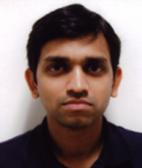 Ratnesh Shukla IISc Bangalore | Extreme scale simulations of high-speed flows using a high-resolution adaptive order finite-volume method Detailed simulations of high-speed compressible flows are challenged by the enormity of the range of spatiotemporal scales that must be accurately resolved to make reliable predictions of the key aerodynamic quantities such as the drag & lift forces, surface temperature, heat flux etc. A particular challenge specific to shocked flows arises from the contrasting resolution requirements imposed by discontinuous features such as shocks and smooth flow features such as unsteady vortices and boundary layers, and turbulence. In this talk, we will describe our work on adaptive order conservative finite-volume methods that meet these contrasting resolution requirements and facilitate a non-oscillatory discrete representation of shocks while simultaneously enabling accurate resolution of the smooth and sharp time-dependent flow features over complex domains discretized using fully unstructured grids. We will present details of the parallel implementation of our adaptive order discretization technique and demonstrate its effective utilization in multi-million cell high-speed flow calculations spread over several thousand cores Author Bio: Ratnesh Shukla is a Professor of Mechanical Engineering at the Indian Institute of Science, Bangalore. Prior to joining the Department of Mechanical Engineering at the Indian Institute of Science in 2009, he was a postdoctoral research associate at the University of Illinois at Urbana Champaign. He received his Ph.D. (2007) and M.S. (2005) from University of California Los Angeles, and B.Tech (2002) from Indian Institute of Technology, Kanpur, all in Mechanical engineering. His research interests are in computational and theoretical fluid mechanics, high-speed multiphase flows (shock-accelerated bubble dynamics), unsteady flows, drag reduction and propulsion. |
| November 20 at 11:00 | |
 Harshal Akolekar IIT Jodhpur | Machine Learning for Turbulence and Transition Modelling in Gas Turbines Turbulence modeling is the workhorse of any design industry. However, these models lack the accuracy of physics-rich high-fidelity simulations. With the increase in the power of computing, high-fidelity multi-physics simulations are becoming increasingly commonplace, but they are still not feasible as an iterative industrial design tool. Therefore, in order to bridge the gap between the accuracy of high-fidelity simulations and turbulence models, certain high-fidelity data sets can be harvested in order to extract meaningful physics-based insight with novel machine learning processes to improve the accuracy of low-fidelity calculations. In this talk, Dr. Harshal will showcase how a CFD-driven multi-expression multi-objective gene expression programming algorithm can be used to improve the accuracy in the prediction of wake turbulence and separation-induced transition for low and high-pressure turbines. The models developed have proven to be effective across a number of operating conditions demonstrating their robustness. Author Bio: Dr. Harshal Akolekar is currently an Assistant Prof. in the Department of Mechanical Engineering and School of AI and Data Science, IIT Jodhpur. Prior to joining IIT, Jodhpur he worked with leading Australian R&D organisations as a research scientist. He completed his ME and PhD in machine-learning-based computational fluid dynamics (CFD) for low-pressure turbines from the University of Melbourne, Australia in 2019, in collaboration with GE, Aviation. He currently develops turbulence and transition models using novel machine learning tools such as evolutionary and deep learning algorithms to improve the accuracy of low-fidelity gas turbine CFD. He is an undergraduate in mechanical engineering from BITS, Pilani. |
| November 20 at 11:30 | |
 Krishnendu Sinha IIT Bombay | Direct numerical simulation to investigate the physics of shock-turbulence interaction Turbulence is a classical problem in fluid mechanics and shock waves are ubiquitous in supersonic and hypersonic flows. The interaction of turbulence with shock waves plays a crucial role in high-speed aerodynamics and engine applications. Shock-turbulence interaction encapsulates several interesting physical phenomena. It also poses severe numerical challenges. In this talk, we will look at direct numerical simulation of canonical shock-turbulence interaction to explore the physics of the thermodynamic fluctuation field. These are responsible for enhanced mixing, increased heat transfer and unsteady pressure loads, each of which are unique engineering problems. A range of cases for varying Mach number and turbulence intensity are presented to elucidate the underlying physics and to develop predictive models for Reynolds-averaged Navier Stokes simulations of hypersonic turbulent flows encountered in scramjet engines. Author Bio: Dr. Krishnendu Sinha is a Professor in the Department of Aerospace Engineering at the Indian Institute of Technology Bombay. His research interest and expertise are in the area computational fluid dynamics and high-performance computing, with a focus on simulating turbulent flows in supersonic and hypersonic regime. He received his Bachelor of Technology in Aerospace Engineering from Indian Institute of Technology Kanpur. He has a Master of Science and Ph.D. from the University of Minnesota, USA. |
| November 20 at 12:00 | |
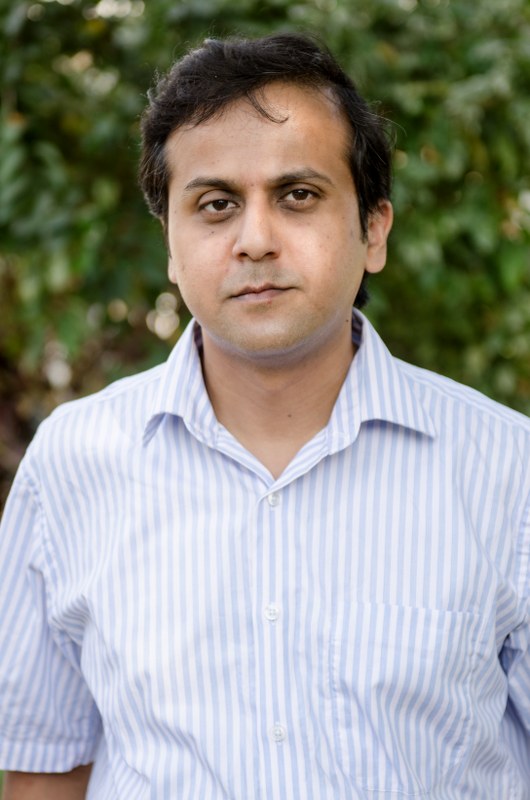 Somnath Ghosh IIT Kharagpur | Compressible turbulent flows- some recent results from DNS and LES In this talk I will present some recently obtained results from DNS and LES of compressible flows in pipes, channels, nozzles with and without shocks. Also I will discuss some recent results from DNS and LES of compressible round jets and the noise produced by them. Author Bio: Dr Somnath Ghosh is an associate professor in the department of Aerospace engineering at IIT Kharagpur. His research is focussed on DNS and LES of compressible wall-bounded and free shear flows. |
| November 20 at 12:30 | |
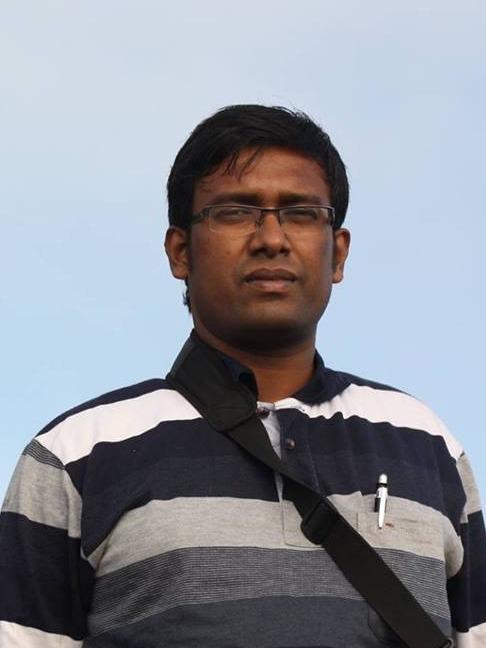 Somnath Roy IIT Kharagpur | GPU optimization of an incompressible immeresed boudary solver The Graphical Processing Units (GPUs) help in considerably reducing the computational time with reduced energy costs. GPUs provide high number of FLOPS and they potentially offer the most efficient architecture to carry out large-scale calculations for scientific problems. However, in order to get desired scalability in GPU system, programmer needs to efficiently utilize different on-chip and off-chip memory components. Furthermore, execution efficiency depends on issues like choosing optimum block size, eliminating warp divergence etc. Therefore, efficient CUDA programming require an in-depth knowledge of GPU hardware, whereas programming standards like OpenACC can help in obtaining optimized parallelization of legacy codes through incremental changes. I will discuss the steps for optimization of an incompressible computational fluid dynamics (CFD) solver for multi-GPU platforms using OpenACC. An immersed boundary technique will be demonstrated with fully parallelized search algorithm in connection with flow over moving and deformable bodies. Application problems in biofluidics and micro-flyers will be shown in which around 100 times speed-up is obtained through GPU acceleration. Author Bio: Dr. Somnath Roy is currently an Associate Professor in the Department of Mechanical Engineering. He is Associate Head of the Centre for Computational and Data Sciences at Indian Institute of Technology Kharagpur. He completed his B.E. from Jadavpur University, M. Tech. from IIT Kanpur and PhD from Louisiana State University. He worked as a Research Associate and Visiting Faculty at Louisiana State University and then joined IIT Patna on February, 2011. In 2016, he moved to IIT Kharagpur. His research interest involves Computational Fluid Dynamics, Mixing, Heat Transfer, Turbulence, Micro-Air Vehicles, Biofluidics and High Performance Computing. He is PI for the NSM nodal centre for training in HPC and AI at IIT Kharagpur. |
| Lunch Break on November 20 at 13:00 | |
| November 20 at 14:00 | |
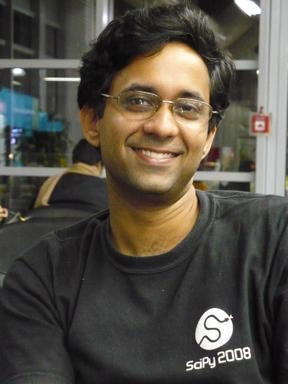 Prabhu Ramachandran IIT Bombay | Lessons from a decade of PySPH PySPH is a cross-platform, open source, Python-based framework for smoothed particle hydrodynamics developed at IIT Bombay. It allows someone to create complex SPH simulations from pure Python. It performs very well on multi-core systems, provides an easy way to execute on multiple nodes via MPI, and also has preliminary GPU support. Several state of the art SPH algorithms have been implemented using this framework. In this talk I first provide a brief overview of PySPH and discuss how PySPH is able to allow users to write pure Python and still obtain good performance. Given that PySPH has been available for more than a decade, I will discuss the things that worked well and the things that did not. Author Bio: Prabhu Ramachandran is a faculty member at the department of aerospace engineering, IIT Bombay. His research interests include particle methods for computational fluid dynamics, scientific computing, parallel and high-performance computing, and applied scientific data visualization. He has been actively involved with the FOSS and Python communities for more than two decades. Along with his students, he has been building an open source framework for particle simulations called PySPH (https://pysph.readthedocs.io). He is the creator of the Mayavi Python package for 3D visualization. Other notable open source projects include compyle, and automan. |
| November 20 at 14:30 | |
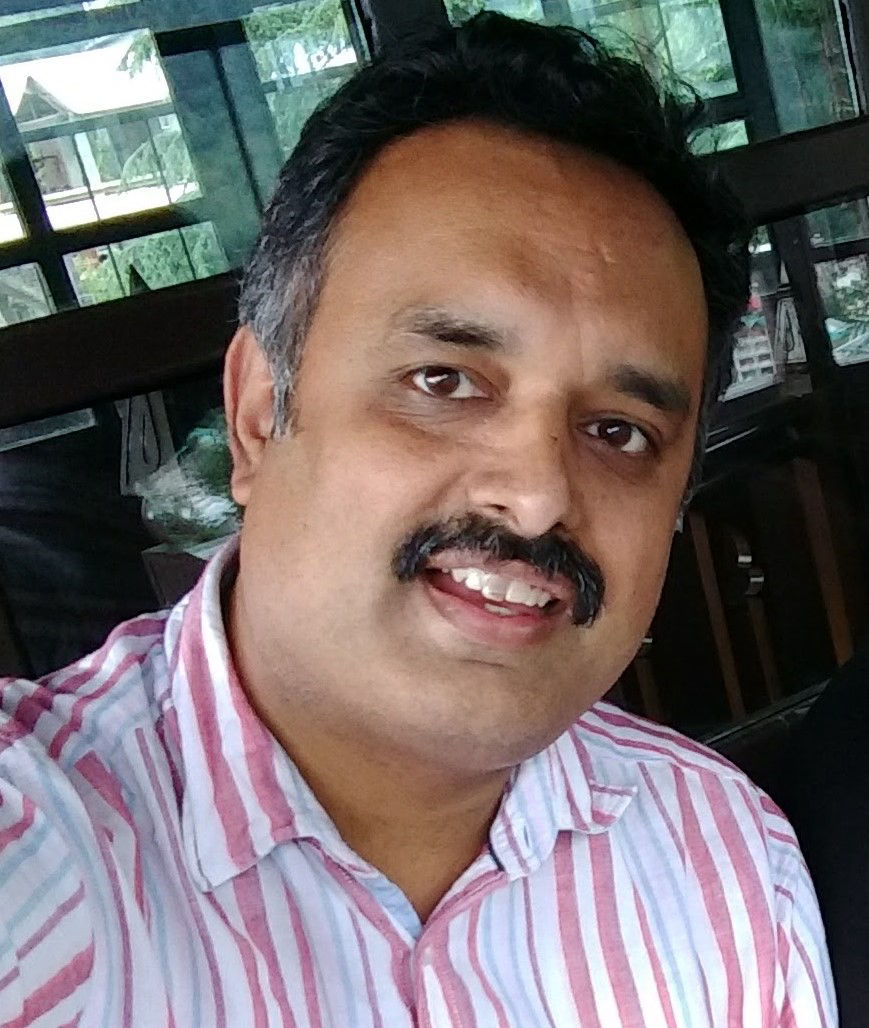 Raja Banerjee IIT Hyderabad | Journey in the Development of Spray Model for Pressure Swirl Atomizer
Author Bio: Prof Raja Banerjee is a faculty in the Department of Mechanical and Aerospace Engineering of IIT Hyderabad. He obtained his Bachelor’s degree in Mechanical Engineering from University of Rewa (1995), Master’s degree in Cryogenic Engineering from IIT Kharagpur (1998) and PhD in Mechanical Engineering from University of Missouri Rolla (2001). Following his PhD, he worked as a Senior Research Engineer in Mark IV Automotive Inc., USA for several years before returning to India and joining IIT Hyderabad. His primary research interest is in multiphase flow with particular focus on liquid spray and atomization, combustion and CFD modelling. He has co-authored several papers on these topics which are reported in leading journals and conference proceedings. |
| November 20 at 15:00 | |
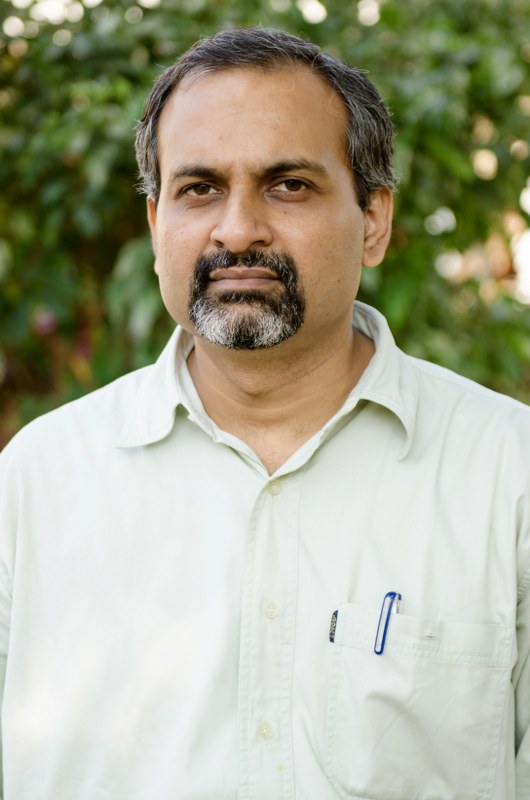 Arnab Roy IIT Kharagpur | Numerical studies on shock wave diffraction Author Bio: Prof. Arnab Roy is a professor in the Department of Aerospace Engineering, IIT Kharagpur. His research spreads across Computational and Experimental Fluid Dynamics and Aerospace Propulsion. His current research interests are: Bluff body flows, Fixed and flapping wing unsteady aerodynamics, Modal analysis of flows, Data driven models, Multiphase flow simulations for semicryogenic rocket engines, Jet in supersonic cross flow, Energetic solid fuels, Droplet breakup, Interacting cavitation bubbles, and Shock wave boundary layer interaction. He was the recipient of Milton Van Dyke Award in 2021, DAAD Faculty Exchange Award in 2008, 2013 and 2019 and many more. |
| November 20 at 15:30 | |
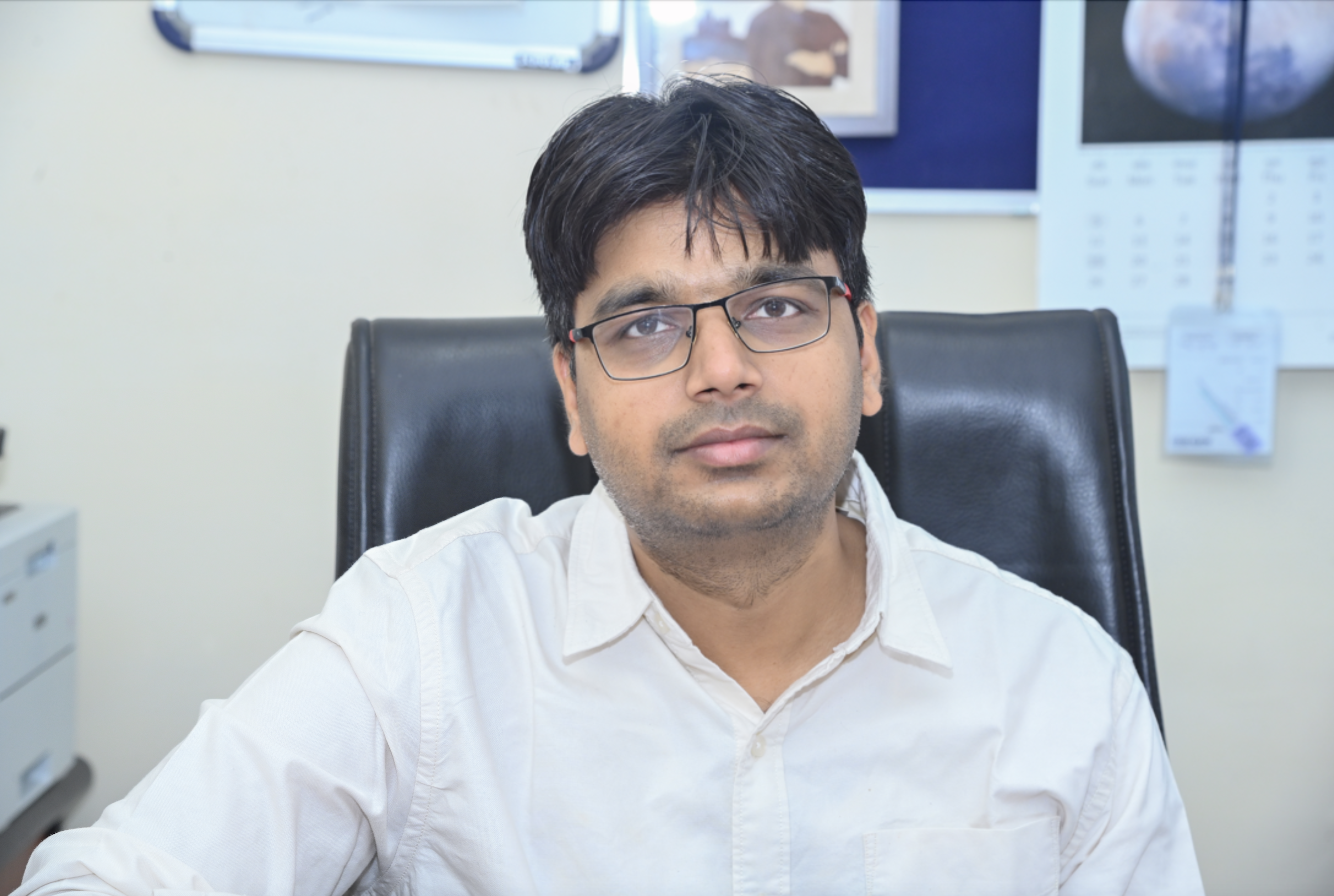 Rajesh Ranjan IIT Kanpur | Enhancing Aerospace CFD predictions using Emerging Computing Architectures and Machine Learning Algorithms Author Bio: Dr Rajesh Ranjan is an Assistant Professor in the Department of Aerospace Engineering at the Indian Institute of Technology Kanpur. He received his Master’s degree from the Indian Institute of Science, Bengaluru, and PhD from the Jawaharlal Nehru Center from Scientific Research (JNCASR), Bengaluru, working with Prof. Roddam Narasimha and Prof. S. M. Deshpande. Dr Ranjan is a computational fluid dynamicist who works in the area of aerothermodynamics of turbomachinery and high-speed flows, unsteady aerodynamics of wings and fuselage, and transition-to-turbulence. He is a member of the Asian Computational Fluid Dynamics (ACFD) executive committee and is a guest editor of ‘Sadhana’ and 'Computers & Fluids' journals. He has designed and taught several courses at IIT Kanpur and received Director’s commendation for ‘outstanding teaching’ twice. Dr Ranjan has been a key member of the organizing committee of many international conferences and seminars including ACFD-2023 and SPICES-2022. |